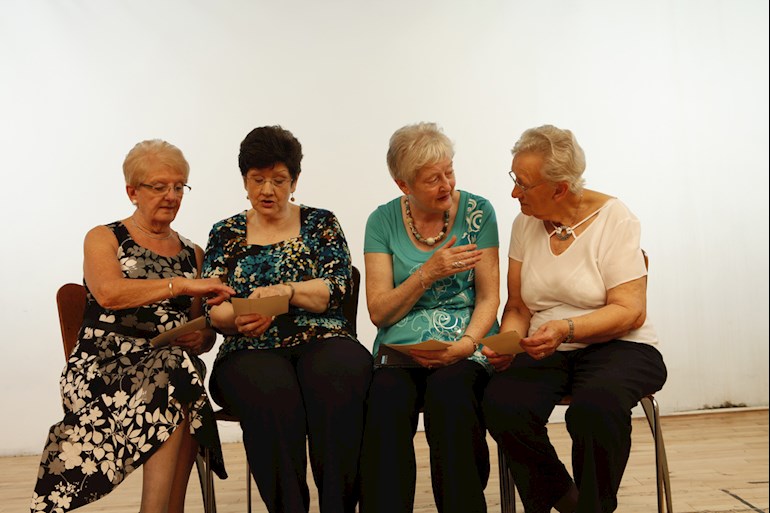There may come a time when you realize you need more support than family and friends can give you. Once you decide you want to reach out for more support, I suggest first looking at your preferred communication style. I am a pretty lousy email correspondent, for example. What I really like is talking to people on the phone if I can’t be with them in person. Increasingly I am phoning fellow lung cancer patients to talk with them. It’s a wonderful thing that long distance telephone calls are no longer expensive!
I also go to church fairly regularly. A church service feels like a safe place where I am surrounded by people who care, and where I can weep during an emotionally moving hymn without disgrace. Even when the people I talk with at social hour are not bosom buddies, they are kind and supportive. Pastoral counseling is part of a minister’s job, as is dealing with the harder questions of life, and he or she might be someone who can offer short-term intensive support.
A special place of support for me is also the mindfulness meditation group, or sangha, that I join weekly. We meditate together, and we discuss what’s on our minds. Every aspect of living with serious illness is fair game to this group, which is concerned with finding peace in the moment and with the impermanence of everything in our world. I went to the sangha on the day I was diagnosed, and I sat there with tears flowing down my cheeks and took my first steps towards living with my new reality.
Some people go to cancer support groups and find them to be the best support network they have. I have not tried that because the only group that meets at my cancer center is billed as a women’s support group that is intended for breast cancer patients. Everyone dealing with cancer has much in common, but we tend to group ourselves into tribes based around our cancer type. I’ve heard tales of stigma against lung cancer happening in such groups, and no one needs that in a situation where you go to open yourself up to others. If you are thinking about joining a support group, find out if it is facilitated by a professional, and ask the facilitator about her or his approach to stigma. Are statements about a patient “deserving” his or her cancer tolerated, or are they gently corrected? Another question to ask is if the group is a mixture of patients being treated with curative intent and metastatic patients, as concerns and needs may differ.
If you can afford it, there are conferences held for lung cancer patients and caregivers by lung cancer advocacy organizations; Free to Breathe held a Lung Cancer Leadership Conference last year that had a rave review from a friend who went. There are others as well and some offer travel grants. Until you go, you have no idea what it’s like to be in the same room as dozens and dozens of people who are also surviving with lung cancer. I went to two conferences last year, and they were peak experiences for me.
I also had several sessions of counseling after my diagnosis. Professional counseling can be difficult to access due to insurance restrictions and shortages of trained counselors, but I recommend it highly if it is available to you. You can say anything to a good counselor, and he or she will listen without judgement. This is where I talked through my darkest and most socially unacceptable thoughts, and started to come to peace with my diagnosis.
Where have you found your greatest support since lung cancer came into your life?
Photo credit: Unmodified image by Colin Gray, taken for the Govanhill photoshoot at the Arches, Glasgow, licensed under terms of Creative Commons Attribution 2.0

